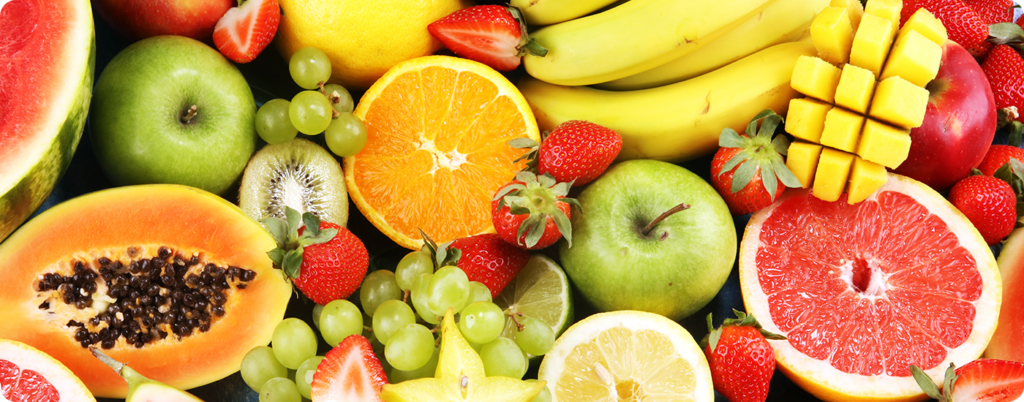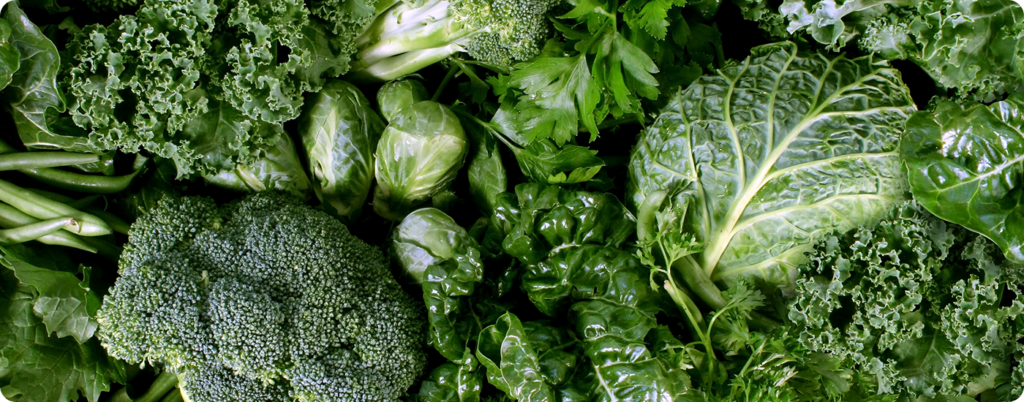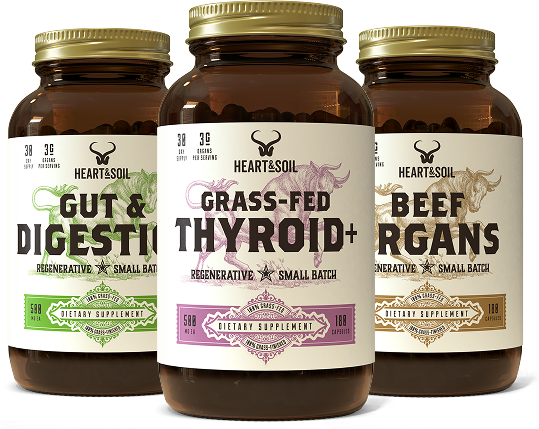- What is the Thyroid?
- Common Thyroid Challenges
- How To Know If You Have a Thyroid Challenge
- What Contributes to Thyroid Issues?
- Diet Suggestions to Improve Thyroid Function
- Thyroid-Supporting Lifestyle Practices
- A Path Towards Thriving Thyroid Health
NOTE ON MEDICAL ADVICE: This article is not written to provide specific medical advice to treat any medical condition. That conversation needs to happen between you and your medical care team.
The third most prescribed drug in the U.S. is Levothyroxine, a thyroid hormone replacement drug (1). Around 10% of adults in the United States deal with thyroid dysfunction (2), yet the thyroid remains one of the most overlooked drivers of energy, metabolism, mood, and vitality.
The good news? Many strategic diet and lifestyle choices can help you naturally improve thyroid function. Whether you’ve been diagnosed or simply want to optimize your metabolic health, understanding the thyroid’s role is essential.
In this article, you’ll learn:
- What the thyroid does and why it matters
- Common symptoms of thyroid imbalance
- Key factors that undermine thyroid function
- How to naturally improve thyroid function, step by step
What is the Thyroid?

The thyroid is a butterfly-shaped organ found in the neck. Although it’s small, it is a key component of the endocrine system. It helps regulate metabolism, body temperature, mood, digestion, and organ function by releasing hormones (3).
Key Hormones in Thyroid Function
- Thyroid Stimulating Hormone (TSH): Released by the pituitary gland, TSH tells your thyroid to make and release thyroid hormones.
- Thyroxine (T4): The main hormone the thyroid produces. It’s a precursor to T3 and is composed of the amino acid tyrosine + four iodine atoms.
- Triiodothyronine (T3): The active thyroid hormone (tyrosine + three iodine atoms). T3 is what actually drives metabolism, energy, and many cellular processes.
Common Thyroid Challenges & Symptoms
Hypothyroidism
- Hypothyroidism occurs when the thyroid gland fails to produce enough thyroid hormones to meet the body’s needs. This can happen when T4 fails to convert efficiently into active T3, or when too much inactive reverse T3 (rT3) is produced (4).
- Reported symptoms: cold hands/feet, low energy, brain fog, weight gain, hair loss, or constipation. Women often report low libido, irregular menstrual cycles, and difficulty conceiving. In men, it may show up as erectile dysfunction, reduced sperm count, mood issues, or decreased stamina.
Hashimoto’s Thyroiditis
- Hashimoto’s Thyroiditis is an autoimmune disorder in which the immune system mistakenly attacks thyroid tissue, leading to an underactive thyroid (5).
- Reported symptoms: fatigue, depression, hair loss, joint stiffness, or dry skin.
Hyperthyroidism
- Hyperthyroidism is the result of the thyroid gland producing too much thyroid hormone. This speeds up metabolism and can lead to overstimulation of the body’s systems. While less common than hypothyroidism, it can be just as disruptive if left unaddressed (6).
- Reported symptoms: heat intolerance, increased appetite with weight loss, sweating, enlarged thyroid gland (goiter), or anxiety.
Graves’ Disease
- Graves’ disease is an autoimmune condition that results in overactive thyroid function. Autoantibodies bind to receptors on the thyroid, tricking it into producing excess hormone (7).
- Reported symptoms: heart palpitations, heat intolerance, poor sleep, low libido, irregular periods, low libido, irregular periods, or increased bowel movements.
How To Know If You Have a Thyroid Challenge
You can take our Thyroid Quiz to gain insight into your thyroid health and what your body might need most to improve thyroid function.
If you suspect a thyroid issue, we suggest working with a medical professional to run testing. Key labs to consider include TSH, Free T4, T3, thyroid antibodies, reverse T3, and cholesterol levels (8).
If you want to find a clinician familiar with animal‑based nutrition or metabolic approaches, check out the Society of Metabolic Health Practitioners or IFM Find a Practitioner.
What Contributes to Thyroid Issues?
Thyroid issues rarely arise from a single cause. Common contributing factors include:
- Genetic predisposition (9)
- Nutrient insufficiency (iodine, selenium, B vitamins) (10)
- Chronic stress (11)
- Toxin exposure (heavy metals, mold exposure, Lyme disease, etc.) (12, 13, 14)
- Infections or chronic inflammation (15)
- Compromised gut health (16)
Diet: Naturally Improve Thyroid Function
Here are 8 tips that can help you naturally improve thyroid function.
1. Emphasize Animal Proteins
Protein is important for producing T4 and transporting thyroid hormones throughout the body. Animal-based sources provide highly bioavailable protein and nutrients like iron, zinc, B vitamins, and fat-soluble vitamins (A, D, E, and K) (17).
Tips: Aim for 0.8-1gram of protein per pound of body weight. Great sources include grass-fed and grass-finished beef, corn-and-soy-free eggs, raw dairy, yogurt, and cheese.
2. Include Carbohydrates

Glucose from carbohydrates supports TSH production by the pituitary and helps convert T4 into active T3. Low-carb diets can suppress this process and slow down your metabolism (18).
Tips: Prioritize whole-food carbs like fruit, honey, white rice, sweet potatoes, and maple syrup. These are easy to digest and provide steady fuel.
3. Prioritize Iodine and Selenium
Iodine is a building block of thyroid hormones, while selenium helps convert T4 to T3 and protects the thyroid from oxidative damage (19).
Tips: For iodine, eat wild-caught cod, oysters, dairy, and eggs. For selenium, include beef, organ meats, cottage cheese, eggs, and seafood.
4. Eat Organs
Organs like liver and kidney contain nutrients like vitamins A, B, K2, copper, zinc, and selenium, which support thyroid function, immunity, and hormone balance (20, 21).
Tips: To help improve thyroid function, eat fresh organs regularly! If the taste or sourcing is difficult, Heart & Soil’s Grass-Fed Thyroid+ is a convenient and effective alternative. It’s part of a full Thyroid Health Stack.
Support Healthy Thyroid Function
Thyroid Health Stack
5. Avoid Seed Oils and Other Processed Foods
Seed oils are high in unstable polyunsaturated fatty acids (PUFAs), which can interfere with thyroid signaling and promote inflammation through oxidative stress (22).
Tips: Avoid oils like safflower, sunflower, soybean, cottonseed, canola, peanut, and grapeseed. These are hidden in most packaged foods and restaurant meals. Use butter, tallow, and ghee instead for cooking and flavor.
6. Minimize Plant-Defense Chemicals

Certain plant compounds, like goitrogens in cruciferous vegetables, can inhibit iodine uptake and thyroid hormone production (23).
Tips: Limit consumption of leafy greens, grains, legumes, nuts, and seeds. If you choose to eat cruciferous veggies like kale, cabbage, or broccoli, cook them thoroughly and avoid eating large amounts raw.
7. Avoid Soy Products
Soy is rich in isoflavones, plant-based estrogens that can interfere with thyroid hormone activity (24, 25). It’s also high in phytic acid, which blocks absorption of thyroid-supporting minerals like zinc and iron.
Tips: Steer clear of soy-based products, such as cereals, crackers, sauces, milk alternatives, protein powders, and infant formula. Soy also sneaks into the diets of conventionally raised pigs and poultry, and their fat can retain PUFAs that impact your thyroid.
8. Explore Dairy Options
Dairy is a great source of calcium and supports metabolic and hormonal health. However, some people struggle with A1 casein, a protein in most conventional cow’s milk, which can irritate the gut and impact thyroid function (26)
Tips: If regular dairy causes issues, try A2 dairy from goats, sheep, buffalo, or specially labeled A2 cows. These are easier to digest and less inflammatory for sensitive individuals.
Lifestyle: Naturally Improve Thyroid Function
Lifestyle choices can help you naturally improve thyroid function. Here are seven key ways to support your thyroid through daily habits:
1. Manage Stress
Chronic stress can trigger or worsen autoimmune thyroid conditions by overloading the immune system and disrupting hormone signaling (27, 28). Tips: Try meditation, prayer, time in nature, gardening, or learning a new hobby—whatever helps you slow down and reset.
2. Prioritize Sleep Quality
Consistent, high-quality sleep is essential for hormone balance and full-body recovery. Poor sleep can disrupt the endocrine system and worsen thyroid function (29).
Tips: Set a consistent bedtime, reduce screen time before bed, and create a calming nighttime routine to improve sleep naturally.
3. Sun Exposure

Sunlight supports circadian rhythm, boosts vitamin D (which impacts thyroid and immune health), lowers blood pressure, and enhances blood flow (30, 31, 32). It may also improve gut diversity—another key link to thyroid health (33).
Tips: Aim for 30+ minutes of sun daily. Ideally, get natural light exposure in the morning, mid-day, and evening.
4. Reduce Exposure to Toxins
Toxins like xenoestrogens (from plastics, pesticides, and personal care products) can disrupt thyroid function, especially during vulnerable life stages (34, 35). BPA, a common chemical in household items, is a known thyroid disruptor (36).
Tips:
- Filter water (to reduce PFAS, heavy metals, and fluoride)
- Choose safe cookware: Use stainless steel, cast iron, or ceramic instead of non-stick.
- Wash produce: Buy organic when possible or clean with baking soda.
- Store safely: Use glass, stainless steel, or silicone instead of plastic.
- Simplify products: Select natural, fragrance-free skincare, makeup, personal products, and cleaning items.
- Improve air quality: Run a HEPA filter in the bedroom and ventilate while cooking.
- Select natural textiles: Choose organic cotton, hemp, or bamboo for bedding and clothing.
5. Find Balance with Exercise
Movement supports metabolism, circulation, and mood, but overtraining can elevate stress hormones and suppress thyroid function (37).
Tips: To help improve thyroid function, aim for 8,000+ steps a day and strength train 2–3 times per week. If you’re feeling fatigued, sore, or constantly run-down, back off and focus on recovery.
6. Be Mindful of Fasting
While intermittent fasting can benefit some health markers, it may suppress metabolism and harm thyroid function when overused, especially in those with existing thyroid or adrenal issues (38).
Tips: Focus on nourishing your body with consistent, nutrient-dense meals instead of skipping meals or extended fasting.
7. Focus on Improving Gut Health

Gut and thyroid issues often go hand in hand (39). A compromised gut can reduce the absorption of nutrients critical for thyroid function and contribute to autoimmune flare-ups (40, 41).
Tips: Improved gut health can stem from a culmination of the steps listed above. You can better assimilate nutrients and optimize digestion by removing highly processed foods, adding nutrient-dense foods, managing stress, and reducing toxins.
A Path Towards Thriving Thyroid Health
Thyroid health is foundational to how you feel, function, and thrive. While thyroid dysfunction is common and can deeply affect energy, digestion, mood, and libido, it’s often possible to turn things around by addressing the root causes.
If you’re unsure where to start, take our Thyroid Quiz to gain insight into your thyroid health and what your body might need most.
Nutrient-dense foods, stress reduction, improved gut health, and clean living can all play a powerful role in restoring balance. Pick one thing you’d like to do today to naturally improve thyroid function. You’re not alone, and radical health is within reach.
Nourish Your Thyroid, Naturally
100% Grass-Fed Thyroid, Liver, & Kidney
Subscribe to future articles like this:

